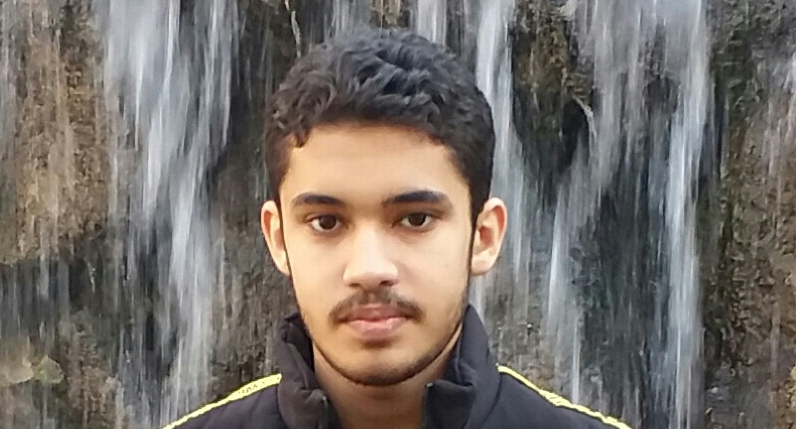Ali Ebrahim AlArab was a 15-year-old high school student from Bani Jamra, Bahrain before his arrest in 2019. He was detained without charge and questioned without a lawyer or parent, in violation of his human rights. He remains in New Dry Dock, the section of Jau Prison for individuals under 21 years of age.
On 30 April 2019, an officer from the Criminal Investigations Directorate (CID) called Ali’s father and asked him to produce Ali at the CID. The officers stated that they would interrogate Ali for a few hours and that he would be released, as they were aware that he was undergoing his school examinations during this time.
Ali’s father complied, and brought Ali to the CID at approximately 4:00pm that same day, 30 April 2019. His father waited outside the interview room for three hours, until Ali called his mother and told her to call his father and tell him to go home. Ali was interrogated without a lawyer or parent present. Three days after he was detained, Ali called his family, informed them that he was still being held at the CID, and that he was “fine.” Ali had not been charged with a crime at this time.
Officers held Ali at the CID for two weeks, transferring him to the Office of Public Prosecution (OPP) twice, on 5 May and 14 May 2019. On 5 May 2019, Ali was charged with placing a false explosive and burning tires. On 14 May 2019, he was charged with placing a false explosive in AlBudai street in March 2019. His detention was ordered for 30 days. He was transferred to Dry Dock Detention Center for pre-trial detention. His detention was renewed every 30 days for six months. Ali’s lawyer stated that the only evidence against Ali was a statement from another 15-year-old boy.
During a phone call, Ali’s family asked if he had been subjected to torture at the CID, but he was unable to speak freely, as an officer was present during the call. He did inform them that he was blindfolded while he was at the CID.
Ali’s family requested multiple times from the CID and Dry Dock administrations to allow Ali to sit his examinations, but the administrations did not respond until after the exam date had already passed. The family also requested the Dry Dock administration to allow him to have books to study. The Dry Dock administration rejected this response, stating that prisoners do not need books.
On 31 October 2019, Ali was convicted in his first case and sentenced to two years in prison. He was transferred to Jau Prison, given a uniform, and his hair was forcibly cut. He was taken to New Dry Dock, the section of Jau reserved for individuals under 21 years of age, where he remains.
At New Dry Dock, the officers isolated Ali, claiming that he tested positive for Hepatitis C. They held him in a small cell with another afflicted individual. His mother called the administration and asked him to be removed from this cell until further testing could be done. Ali was moved to a solitary cell, where he was held for 23 hours per day for two weeks, when blood test results showed that he did not suffer from Hepatitis C or any other medical condition.
The government of Bahrain has violated numerous human rights laws and obligations in its treatment of Ali, including the International Covenant on Civil and Political Rights (ICCPR), the Convention on the Rights of the Child (CRC), the Convention Against Torture and Other Cruel, Inhuman or Degrading Treatment or Punishment (CAT), and the International Covenant on Economic, Social and Cultural Rights (ICESCR), each of which Bahrain has acceded to. Ali was held without charges for six days, and was not brought to a judicial authority until after six days, in violation of Article 14 of the ICCPR and Article 37 of the CRC. Additionally, the use of a blindfold during interrogations at the CID created a coercive environment, and may have constituted ill treatment, in violation of the CAT and CRC. Further, the prolonged solitary confinement period of two weeks may exceed medical necessity, and could also constitute torture or ill treatment. Finally, the refusal of the authorities to make accommodations for Ali to study for and complete his examinations are in violation of his right to education as enshrined in Article 28 of the CRC and Article 13 of the ICESCR.
Americans for Democracy & Human Rights in Bahrain (ADHRB) calls on the government to release Ali, in light of the coercive interrogation techniques, without a parent or lawyer present. We also call on the Bahraini authorities to investigate allegations of torture and ill treatment in the CID and detention facilities. We further call on the government of Bahrain to uphold its obligations under international law, by providing compensation to Ali for the violation of his rights under the ICCPR, CAT, CRC, and ICESCR.





